Many of us are tight on cash these days, and rising prices at the supermarket aren't making things any easier. It seems like the prices of basic foods such as bread and milk go higher and higher every day, and when you have a family (or even just yourself) to feed, the amount you spend on groceries might force you to make financial sacrifices in other areas of your life. Fortunately, there are ways to lower your grocery bill that don't involve starving yourself, and they're easier than you might think!
I love finding new and easy ways to save cash, so this easy trick with an ice cube tray that helps you save money on dairy products was just what I needed to keep my wallet a little more full! But you can save money on food products before you even bring them home if you know what to do. Some things we buy at the supermarket can even be made at home, such as these easy and cheap DIY cleaning wipes, but for the things we can't create or grow, there are still plenty of ways to make sure your weekly trip to the store doesn't empty your bank account.
Check out these simple ways to save money on your next shopping trip, and over time, you'll see the savings add up! I was shocked when I saw how much money I saved when I started doing number 12!
Make sure you SHARE this helpful post with all your friends so they can use these handy shopping tricks!
1. Buy Generic
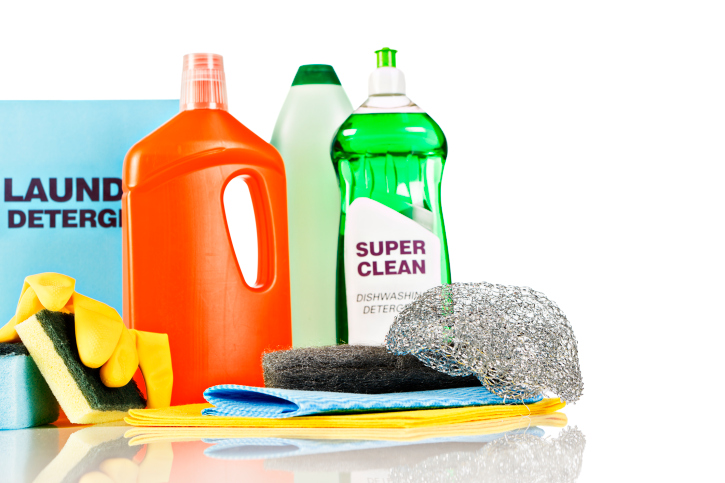
It's true that some name brand products are better than their generic counterparts, but in many cases, the generic version is just as good as or even better than the more expensive, flashier products you normally get off the shelves. Buy the name brands you have unwavering loyalty for, but buy generic for everything else and watch your grocery bill go down.
2. Make A List
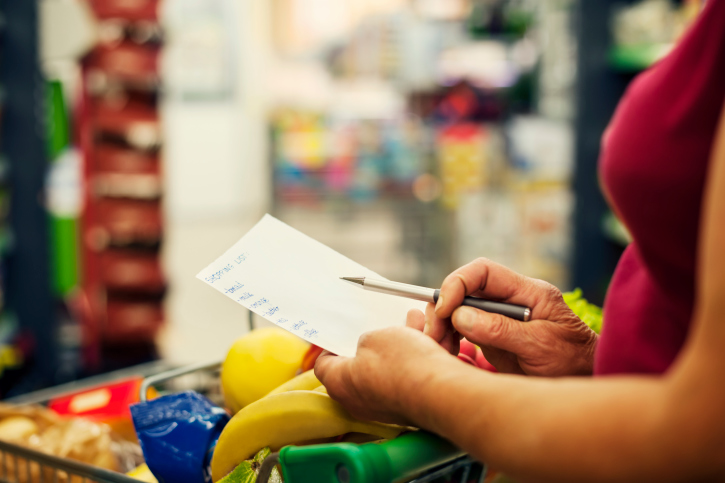
It seems like a given, but lots of people go shopping without a list written down and end up spending way more than they'd originally planned. Write down a list of things you need before you leave the house, and stick to it. Add a couple of empty entries for snacks or treats that you find while shopping if you want, but try your best to only buy the things on your list.
3. Buy Frozen Produce
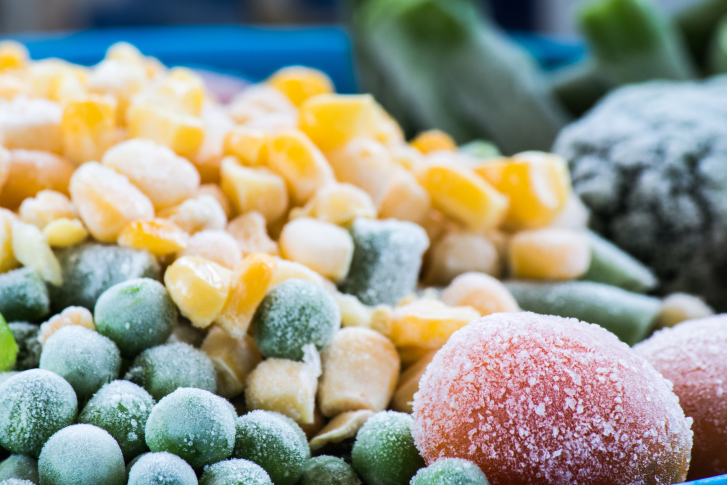
Canned fruits and vegetables are not only less tasty than their fresher versions, but also less healthy. But if you have a hard time affording all the fresh produce you'd like to include in your diet, consider buying frozen instead. Frozen fruits and veggies are packed at the peak of freshness, and unlike the fresh stuff, they won't go bad if you don't eat them within a week. Frozen might not suit all your needs, especially if you enjoy snacking on fresh fruit from right out of your fridge, but if you're going to be cooking or making smoothies, they could save you a lot of cash.
4. Go Shopping AFTER You've Eaten
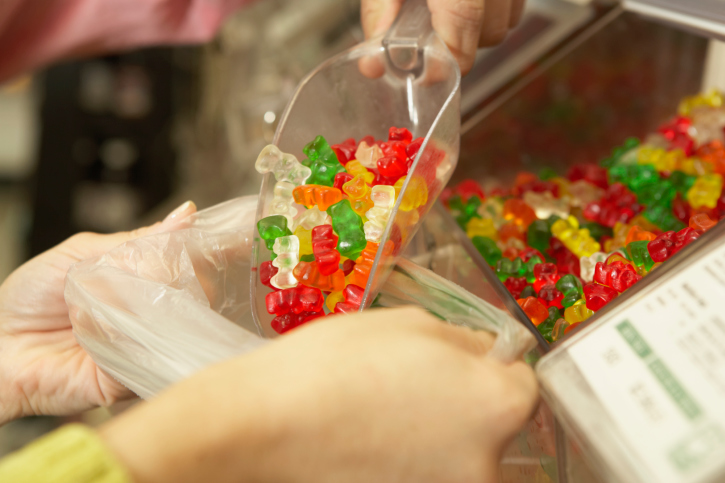
You know what looks tasty at the supermarket when you're hungry? Literally everything. Shopping on a full stomach will make you less likely to make impulse buys that are bad for your body and your wallet. Go shopping after you eat to make it easier to stick to the items on your list and stay far away from the potato chip, candy, and ice cream aisles.
5. Buy Loose Greens Instead Of Pre-Packaged Salad Mixes
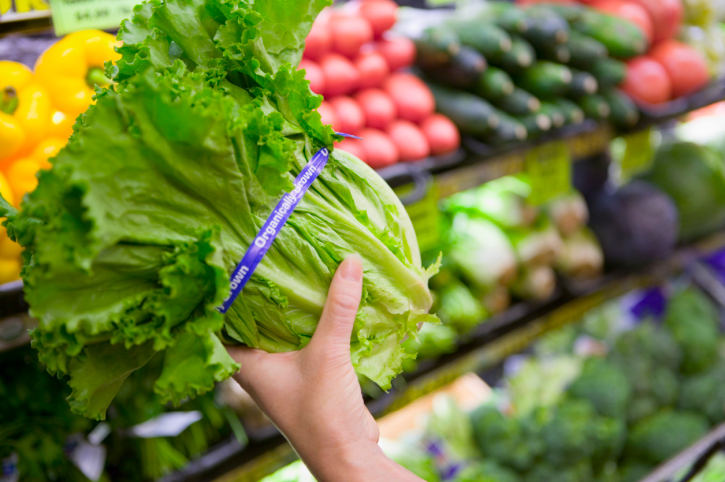
Not only do pre-packaged greens tend to be more expensive and worse for the environment thanks to their plastic enclosures, but they're also more wasteful. Leafy veggies tend to stay fresher for longer periods of time when they're bought in their natural state rather than being picked and packed together in a plastic container. By buying veggies in their "loose" state, you're less likely to end up throwing out a large portion of your purchase.
6. Shake Your Fresh Produce
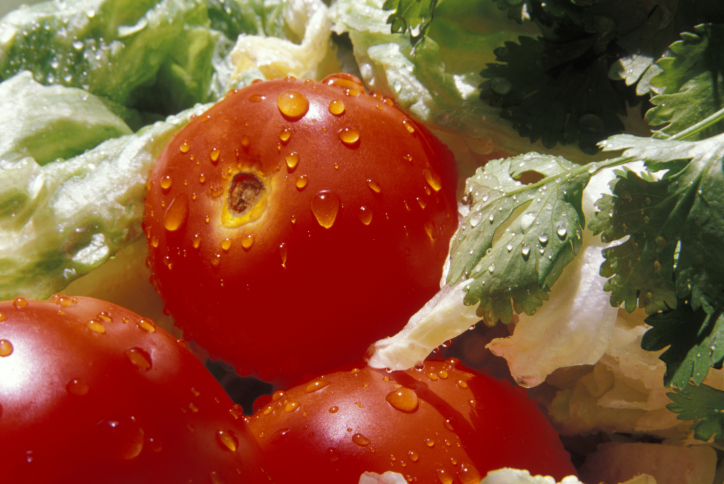
If your fruits and vegetables are wet when you pick them up, it's a good idea to shake off the excess water before heading to the checkout counter. The extra water adds weight to your produce, which can make them cost more. You might only save pennies at a time, but it will add up in the long run.
7. Use Coupons
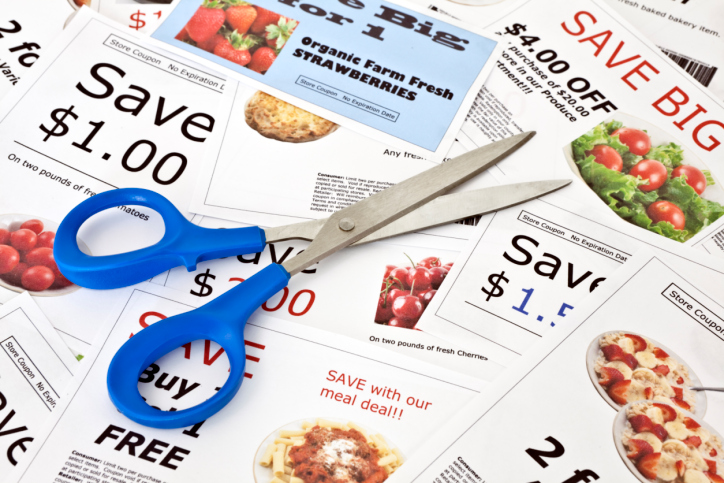
You don't have to spend your life being an extreme couponer to score savings with your clipping skills. Spend just a few minutes cutting out coupons for the next time you go shopping, and you'll be surprised at how much you save.
8. But Don't Buy Something Just Because You Have A Coupon For It

Even if you find a "Buy 5 for the price of 1" coupon for hot dogs, you'll be wasting your money if you don't eat hot dogs. Clip only the coupons you find that apply to the items on your shopping list, and maybe a few for items such as toilet paper or dish soap that you know you'll need in the future, even if you don't need them right now. You should be clipping coupons for the things you're already going to buy — not buying things because you have a coupon for them.
9. Pay Attention To Weekly Sales

Many times, grocery stores will have sales that are advertised in local magazines or commercials. It's a good idea to take advantage of them, especially if you have coupons that you could combine with the sale to achieve further savings. Don't just ignore those sale ads — use them to your advantage when you plan your next shopping trip.
10. Watch For Tricky Sale Language

You've probably seen the sale signs (especially in the yogurt section) advertising things like, "Buy 10 for $10!" Lots of people assume they actually need to buy ten cups of yogurt to get the deal, but in reality, this is just the supermarket's way of saying, "Each cup is $1.00." Unless you see a specific disclaimer on the sign that says that they're more expensive if you buy fewer than the advertised quantity, you can safely assume that you can pick up as much or as little as you want and still get the advertised savings.
11. Shop At Farmers' Markets

While it's true that some items are cheaper at the grocery store than they are at the farmers' market, you might be surprised to find that there are many fruits, veggies, and other fresh products that are actually cheaper if you get them outside of the supermarket. Grocery stores often mark up their prices thanks to all the middle men involved in getting produce from the ground to the shelves, while the growers who sell your food at the farmers market are the only ones who profit when you buy their food. Plus, it feels much better to buy locally-grown food from and put money directly into the pockets of the hard-working people from your own community!
12. Sign Up For Frequent Customer Programs

If you know you're going to be going to a specific supermarket regularly, getting a frequent shopper card can save you hundreds or even thousands of dollars a year. Many stores have sales that only apply to card-holders, and some even combine then with their affiliate businesses such as gas stations. The five minutes it takes to sign up for a frequent shopper card could mean big savings in your future.
13. Use A Basket For Small Trips

If you're planning on doing a week's worth of shopping for a family of four, it's perfectly reasonable to use a cart to get everything you need in one trip. But if you know you only need a few things, pick up a basket on your way in instead of a big cart. When you know you have limited space, you're much less likely to pick up things you don't need and stick to the necessities instead.
14. Don't Be Afraid To Say "No"

When friendly supermarket clerks offer you promotions that go along with the items you're already buying, it can be tempting to buy the extra items because of the great deal you'd be getting. But saying "no thanks" rather than immediately agreeing to a tempting impulse purchase can save you a lot of money in the long run.
15. Buy Certain Foods In Bulk
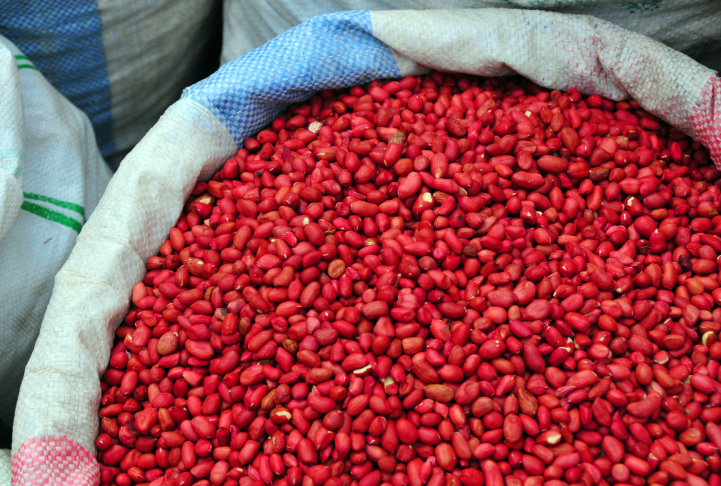
Foods such as nuts can be expensive when you buy them in small containers. Even though you might end up paying more initially to buy them in bulk containers, you'll end up saving money in time. Nuts, dry beans, and similar foods have long shelf lives, so you can buy them in large quantities without having to worry about them going bad before you get to enjoy them.
16. Buy Ingredients Rather Than Prepared Foods
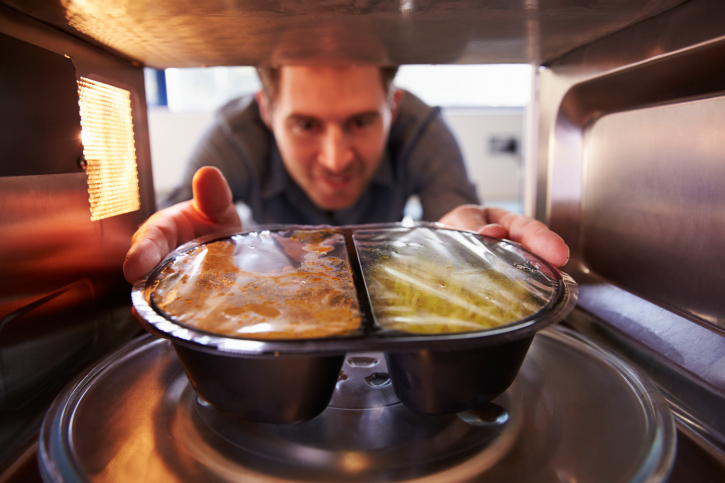
Pre-packaged dinners can seem ideal, especially if you lead a busy lifestyle that leaves you little time to cook. Buying simple ingredients and doing a bit of make-ahead meal preparation on the weekends can save you a lot of money, though. And of course, homemade meals are almost always tastier than anything that comes in a microwavable plastic container!
Make sure you SHARE these smart shopping tips with everyone you know!




